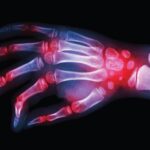For complete details, including source material, refer to the full study.
Excerpted and adapted from:
David P, Di Matteo A, Hen O, et al. Poly-refractory rheumatoid arthritis: An uncommon subset of difficult to treat disease with distinct inflammatory and non-inflammatory phenotypes. Arthritis Rheumatol. 2024 Apr;76(4)


